Dramaturg Robin O’Connell sounds of on Lauren Gunderson’s ‘Silent Sky’
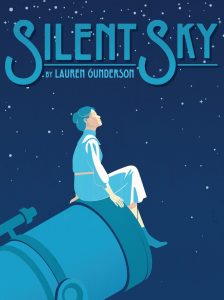 The FGCU TheatreLab is producing Lauren Gunderson’s Silent Sky February 16-25. For this show, they have relied on Dramaturg Robin O’Connell for technical advice and guidance.
The FGCU TheatreLab is producing Lauren Gunderson’s Silent Sky February 16-25. For this show, they have relied on Dramaturg Robin O’Connell for technical advice and guidance.
A dramaturg is a literary adviser who provides vital research and information for theater productions and opera companies. In theater, the dramaturg’s primary task is to provide the actors and production team with textual analysis of the play’s story and theme, as well as information on production history, the author of the play and any previous adaptations. Their research gives context to the production and ensures its quality and accuracy. From the audience’s perspective, they help breathe life into the words on the page.
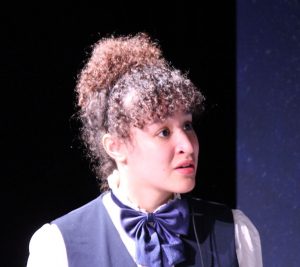 O’Connell includes this note in Silent Sky’s Playbill:
O’Connell includes this note in Silent Sky’s Playbill:
“Our DNA is made of carbon, hydrogen, oxygen, nitrogen and phosphorous. All of these elements are made by stars and released into the cosmos when stars die. We are forged in the death of stars. We are made of stardust.
“When an astronomer studies the sky, they are a piece of the universe reaching back for itself. As we reach for the heavens,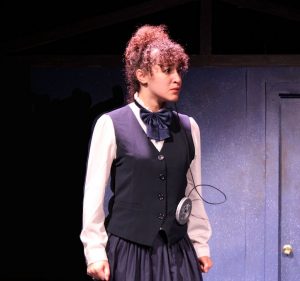 reach for truth, we hear the symphony of stars. Henrietta Leavitt heard their call and answered.
reach for truth, we hear the symphony of stars. Henrietta Leavitt heard their call and answered.
“In Silent Sky, playwright Lauren Gunderson intertwines historical reality and fiction. Gunderson stated that ‘history is a story.’ If history is a story, we must question who controls the narrative and why certain stories go untold. In choosing to tell Leavitt’s story, we honor unspoken voices and hidden truths.
“Born 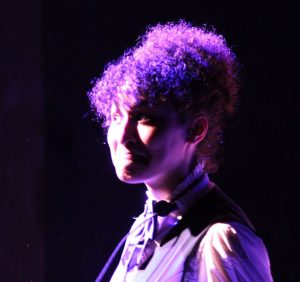 on July 4, 1866 in Lancaster, Massachusetts, Leavitt was the daughter of a preacher and grew up singing hymns. At age seventeen, Leavitt enrolled in the Oberlin Conservatory of Music. She lost her hearing and left the Conservatory. She enrolled in Oberlin College, where she excelled in mathematics. After Oberlin, she returned to Cambridge to study at the Harvard Annex (now Radcliffe). Her program included courses in astronomy, physics and mathematics, and introduced her to the nearby observatory.
on July 4, 1866 in Lancaster, Massachusetts, Leavitt was the daughter of a preacher and grew up singing hymns. At age seventeen, Leavitt enrolled in the Oberlin Conservatory of Music. She lost her hearing and left the Conservatory. She enrolled in Oberlin College, where she excelled in mathematics. After Oberlin, she returned to Cambridge to study at the Harvard Annex (now Radcliffe). Her program included courses in astronomy, physics and mathematics, and introduced her to the nearby observatory.
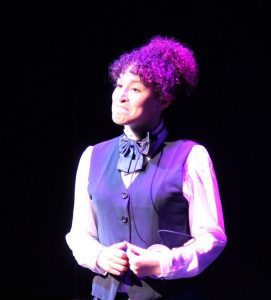 “She began working as an unpaid research assistant at the Harvard Observatory. Her work there counted as credits toward an advanced degree in astronomy. She was hired by the Observatory as a ‘computer’ to calculate astronomical data. Leavitt pursued her dedication to the field with the utmost devotion, one colleague referring to it as an ‘almost magical zeal.’ She took up even the most difficult tasks without complaint and with no expectation of acknowledgment.
“She began working as an unpaid research assistant at the Harvard Observatory. Her work there counted as credits toward an advanced degree in astronomy. She was hired by the Observatory as a ‘computer’ to calculate astronomical data. Leavitt pursued her dedication to the field with the utmost devotion, one colleague referring to it as an ‘almost magical zeal.’ She took up even the most difficult tasks without complaint and with no expectation of acknowledgment.
“Cecilia Payne, the first woman to earn Harvard’s doctoral degree in astronomy, spoke of the conditions Leavitt endured at Harvard. 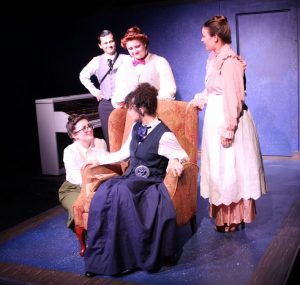 Payne stated that Harvard ‘condemned a brilliant scientist … and probably set back the study of variable stars by at least a decade.
Payne stated that Harvard ‘condemned a brilliant scientist … and probably set back the study of variable stars by at least a decade.
“Despite the hardships Leavitt and her colleagues endured, they made substantial contributions.Their work is at last being recognized. Women in STEM (Science, Technology, Engineering and Mathematics) have long faced discrimination in the workplace. Women make 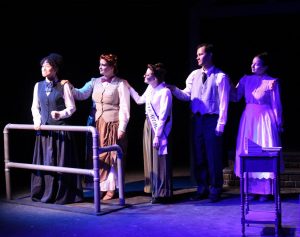 only 26% of the workforce in STEM fields.
only 26% of the workforce in STEM fields.
“At the heart of every grand discovery there is a human being. Denying women their place in science deprives humanity of their knowledge – and denies women their humanity. Silent Sky explores the joy of discovery, the wonder of the stars and our place in the vast and beautiful universe.
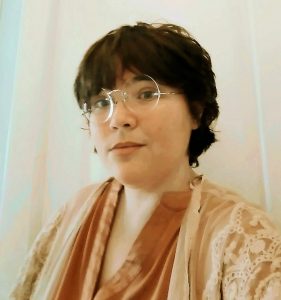 “The story of Henrietta Leavitt reminds us that the sky belongs to everyone.”
“The story of Henrietta Leavitt reminds us that the sky belongs to everyone.”
Silent Sky is on stage at FGCU TheatreLab February 16-25. Go here for play dates, times and a full cast list.
February 15, 2024.














 Tom Hall is both an amateur artist and aspiring novelist who writes art quest thrillers. He is in the final stages of completing his debut novel titled "Art Detective," a story that fictionalizes the discovery of the fabled billion-dollar Impressionist collection of Parisian art dealer Josse Bernheim-Jeune, thought by many to have perished during World War II when the collection's hiding place, Castle de Rastignac in southern France, was destroyed by the Wehrmacht in reprisal for attacks made by members of the Resistance operating in the area. A former tax attorney, Tom holds a bachelor's degree as well as both a juris doctorate and masters of laws in taxation from the University of Florida. Tom lives in Estero, Florida with his fiancee, Connie, and their four cats.
Tom Hall is both an amateur artist and aspiring novelist who writes art quest thrillers. He is in the final stages of completing his debut novel titled "Art Detective," a story that fictionalizes the discovery of the fabled billion-dollar Impressionist collection of Parisian art dealer Josse Bernheim-Jeune, thought by many to have perished during World War II when the collection's hiding place, Castle de Rastignac in southern France, was destroyed by the Wehrmacht in reprisal for attacks made by members of the Resistance operating in the area. A former tax attorney, Tom holds a bachelor's degree as well as both a juris doctorate and masters of laws in taxation from the University of Florida. Tom lives in Estero, Florida with his fiancee, Connie, and their four cats.